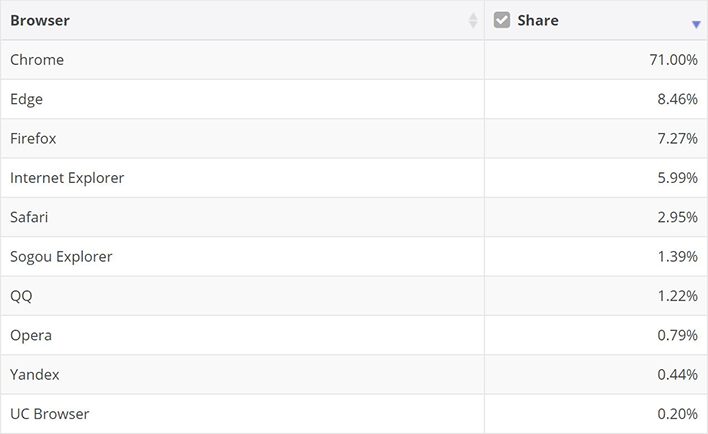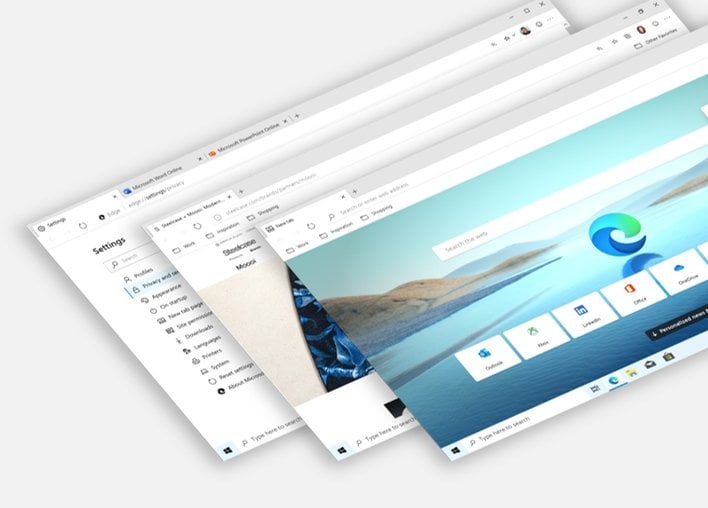Firefox Browser Use Drops As Mozilla's Worst Microsoft Edge Fears Come True
Now, at the start of August, we’re getting some fresh numbers in for the desktop browser market, and things aren’t looking good for Mozilla. Microsoft increased its share of the browser market from 8.07 percent in June to 8.46 percent in July. Likewise, Firefox fell from 7.58 percent to 7.27 percent according to NetMarketShare.

While any further market share increases for Edge are no doubt welcomed by Microsoft, it still has a long way to go before it is able to directly tangle with Chrome. Chrome’s July market share stood at a dominant 71 percent, compared to 70.19 percent for June.

Microsoft’s latest Edge browser is truly cross-platform, as it is available on Windows, macOS, Android, and iOS platforms, and has garnered much praise for its performance, stability and efficiency, (especially compared to the sometimes resource-hungry Chrome). It also helps that Microsoft has been pushing Chrome to customers with the Windows 10 May 2020 Update, and has been heavily encouraging customers to give its new web browser a try.
As for Mozilla, the company wasn’t too happy when Microsoft first announced that it was going to use Chromium for Edge way back in December 2018. Mozilla's Chris Beard at the time accused Microsoft of "giving up" by abandoning EdgeHTML in favor of Chromium. "Microsoft’s decision gives Google more ability to single-handedly decide what possibilities are available to each one of us," said Beard at the time. "We compete with Google because the health of the internet and online life depend on competition and choice."

"Making Google more powerful is risky on many fronts. If one product like Chromium has enough market share, then it becomes easier for web developers and businesses to decide not to worry if their services and sites work with anything other than Chromium."
Microsoft developer Kenneth Auchenberg fought back the following January, writing, "Thought: It's time for Mozilla to get down from their philosophical ivory tower. The web is dominated by Chromium, if they really *cared* about the web they would be contributing instead of building a parallel universe that's used by less than 5 percent."
Given that Mozilla has in essence not given in to the dark side by joining Chromium, it looks as though Google and Microsoft are hell-bent on running the tables and pushing Firefox into irrelevancy.


